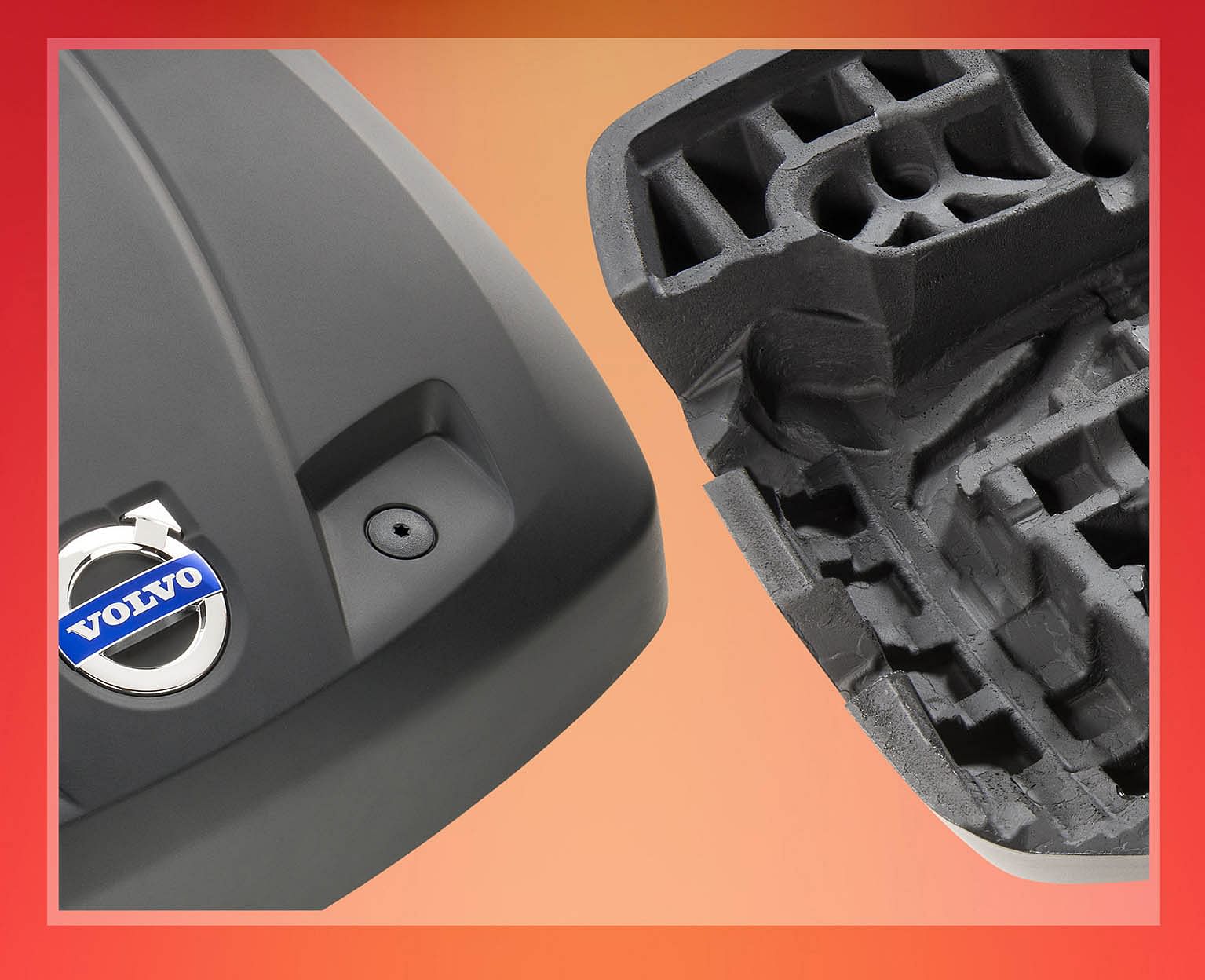BASF develops lightweight, flexible Elastofoam polyurethane car engine cover
BASF has developed a flexible polyurethane integral foam that can be used to produce lightweight engine coverings with the one-shot process – with one material in one process step.
BASF has developed a flexible polyurethane integral foam that can be used to produce lightweight engine coverings with the one-shot process – with one material in one process step.
The soft cover, made from Elastofoam I 4603, is manufactured by the Austrian company Polytec Car Styling and fitted as standard in various car models with petrol engines of the Swedish automobile manufacturer Volvo. The sound-absorbing material for the flexible visible part is characterised by a low component density of 140 kg/m³, is dimensionally stable, media-resistant as well as resistant to thermal aging up to 150degC. With this novel component, BASF is supporting the automotive industry in reconciling the – often contrary – objectives of lightweight construction, functional integration and compliance with safety standards.

The tailor-made PU foam Elastofoam I makes it possible to produce engine covers that are characterised by good sound absorption and thermal engine encapsulation. While the part has an open-cell foam structure on the bottom surface, the material on the front side forms a coherent skin with an attractive surface appearance. The surface is accurate in every detail and is printable. The part can absorb a lot of energy on account of the open-cell foam structure, thus increasing passive safety for pedestrians in the event of impact against the hood.
“Together with BASF, we have developed the part in such a way that material, production and functionality are optimally adjusted to one another. Moreover, we have achieved this in an unbelievably small amount of time. We can thus manufacture various geometries for different engine models and still simplify our logistics,” says Christian Schobesberger, responsible for technical development at Polytec.
Volvo currently uses the engine cover, which weighs from approximately 1.3 to 1.7kg depending on the automobile model, in four different versions. The important thing is that the engine cover is light, shows good acoustic damping properties and has a high-quality surface. In comparison to conventional engine covers made of two materials, the elastic soft cover foamed in the cost effective one-shot process is able to integrate acoustic and mechanical properties in one part. This saves process steps during production, and better use can be made of the available space around the engine.
Plastics technology has gained great importance in engine acoustics. It plays an essential role in mitigating between lightweight construction and acoustics. BASF develops many plastics and processing methods, making engine covers more resistant, lighter and more space-saving. In addition to various PU foams, the portfolio includes the melamine resin foam Basotect, engineering plastics such as Ultramid, and the microcellular special polyurethane Cellasto.
RELATED ARTICLES
Autoliv Plans JV for Advanced Safety Electronics With China’s HSAE
The new joint venture, which is to be located strategically near Shanghai and close to several existing Autoliv sites in...
JLR to Restart Production Over a Month After September Hacking
Manufacturing operations at the Tata Group-owned British luxury car and SUV manufacturer were shut down following a cybe...
BYD UK Sales Jump 880% in September to 11,271 units
Sales record sets the UK apart as the largest international market for BYD outside of China for the first time. The Seal...






 By Autocar Professional Bureau
By Autocar Professional Bureau
 19 Mar 2015
19 Mar 2015
 14383 Views
14383 Views





 Ajit Dalvi
Ajit Dalvi




